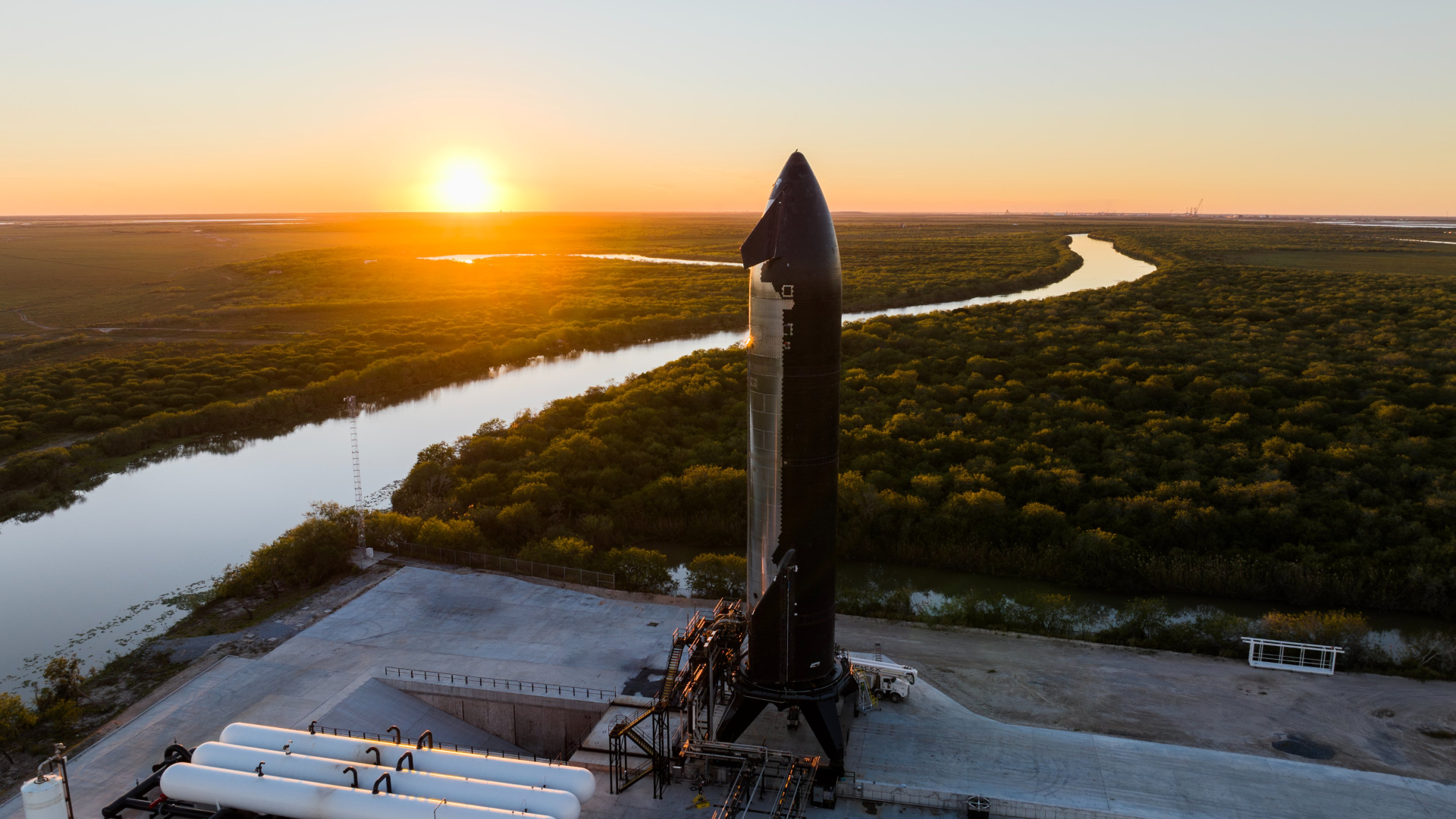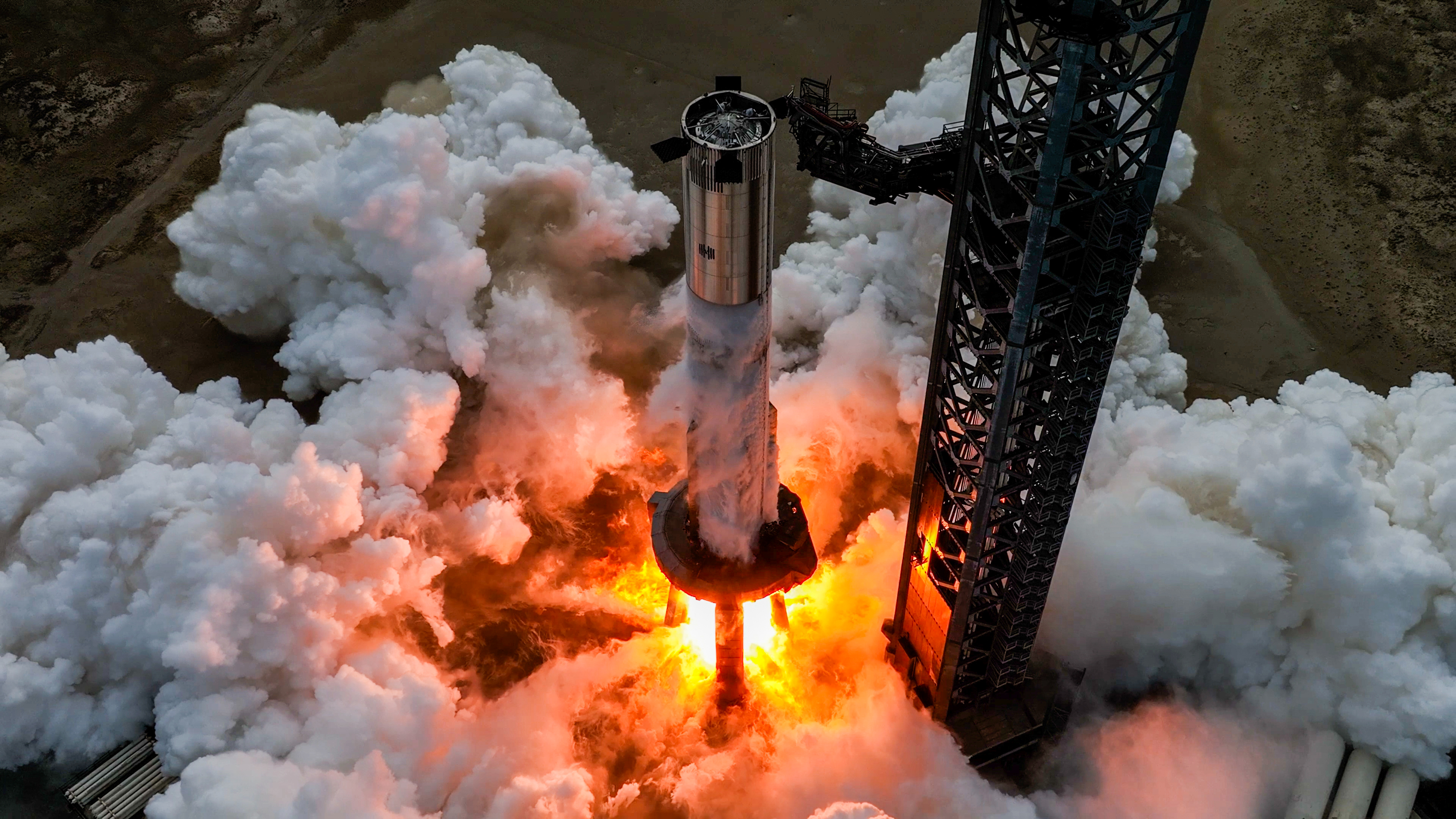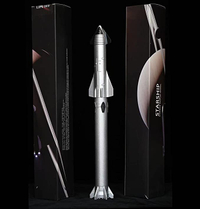SpaceX's Starship Flight 7 test flight gets FAA launch license. But when will it fly?
SpaceX's Starship Flight 7 test flight will look similar to its last two launches, but exactly when it will lift off is still unclear.

SpaceX's next Starship megarocket now has a license to fly.
The U.S. Federal Aviation Administration (FAA) on Tuesday (Dec. 17) issued a launch license for SpaceX's upcoming Starship Flight 7 test flight, clearing the way for the company's next launch of the world's largest rocket from South Texas. The launch license comes on the heels of several Starship engine tests by SpaceX to check the flight readiness of its seventh Ship spacecraft and Super Heavy rocket booster.
"The FAA continues to increase efficiencies in our licensing determination activities to meet the needs of the commercial space transportation industry," Kelvin B. Coleman, FAA Associate Administrator for Commercial Space Transportation, said in a statement. "This license modification that we are issuing is well ahead of the Starship Flight 7 launch date and is another example of the FAA’s commitment to enable safe space transportation."
SpaceX has not yet set a target date for its Flight 7 Starship launch test from its Starbase facility near Boca Chica Beach, but with about two weeks remaining in the year, a potential flight in early or mid-January 2025 may be the most likely. Officials with Cameron County, Texas — a region that includes Starbase — have not issued any road closures for the remainder of December. Such road closure notices typically accompany imminent Starship launch tests by SpaceX.
As its name suggests, Flight 7 will be SpaceX's seventh major test launch of its Starship megarocket. The company has performed a series of short "static-fire" engine tests with the Starship upper-stage vehicle and the Super Heavy booster, but they have not yet been stacked atop one another for flight.
Related: What's next for SpaceX's Starship after its successful 6th test flight?
Starship Die Cast Rocket Model Now $47.99 on Amazon.
If you can't see SpaceX's Starship in person, you can score a model of your own. Standing at 13.77 inches (35 cm), this is a 1:375 ratio of SpaceX's Starship as a desktop model. The materials here are alloy steel and it weighs just 225g.
When fully assembled, the six-engine Starship spacecraft and 33-engine Super Heavy booster stand nearly 400 feet (122 meters), making it the world's tallest and most powerful rocket. SpaceX successfully caught its Flight 5 Super Heavy booster with the giant metal "chopsticks" at the Starbase launch pad this past October.
Breaking space news, the latest updates on rocket launches, skywatching events and more!
During the Flight 6 test flight in November, SpaceX skipped the booster catch due to a sensor issue but successfully soft-landed its Starship vehicle in the Indian Ocean, capturing stunning video of the splashdown. The Starship Flight 7 test is expected to recreate that Ship landing in the ocean while also making another attempt at catching the Super Heavy booster.
"The Flight 7 mission profile involves launch of the combined Starship/Super Heavy vehicle from Boca Chica, Texas, a return to the launch site of the Super Heavy booster rocket for a catch attempt by the launch tower, and a water landing of the Starship vehicle in the Indian Ocean west of Australia," FAA officials wrote in the license update.
SpaceX has designed Starship and Super Heavy to serve as a fully reusable heavy-lift system for launching massive payloads into orbit or on trips to the moon, Mars or beyond. The company has launched six Starship test flights since April 2023.
NASA has picked the Starship vehicle to land its Artemis 3 astronauts on the moon in 2027, and SpaceX has already sold at least two flights on Starship to private customers, including American billionaire Jared Isaacman. Isaacman booked the first crewed flight on a Starship spacecraft as part of his Polaris Program of three SpaceX flights, the first of which launched in September of this year and included the world's first private spacewalk.

Isaacman also bankrolled SpaceX's 2021 Inspiration4 private spaceflight and has been tapped by President-elect Donald Trump to serve as NASA Administrator if confirmed next year.
SpaceX hopes to scale up its Starship launch test campaign in 2025, with up to 24 test flights. The company has said it would take at least eight Starship launches (and maybe more) to fuel a single Ship vehicle to reach the moon, and new in-space refueling technology will be needed.
SpaceX CEO Elon Musk first unveiled the concept for what would become Starship in 2016. Earlier this year, Musk said SpaceX is hoping to launch its first Starship to Mars in 2026.
Join our Space Forums to keep talking space on the latest missions, night sky and more! And if you have a news tip, correction or comment, let us know at: community@space.com.

Tariq is the Editor-in-Chief of Space.com and joined the team in 2001, first as an intern and staff writer, and later as an editor. He covers human spaceflight, exploration and space science, as well as skywatching and entertainment. He became Space.com's Managing Editor in 2009 and Editor-in-Chief in 2019. Before joining Space.com, Tariq was a staff reporter for The Los Angeles Times covering education and city beats in La Habra, Fullerton and Huntington Beach. In October 2022, Tariq received the Harry Kolcum Award for excellence in space reporting from the National Space Club Florida Committee. He is also an Eagle Scout (yes, he has the Space Exploration merit badge) and went to Space Camp four times as a kid and a fifth time as an adult. He has journalism degrees from the University of Southern California and New York University. You can find Tariq at Space.com and as the co-host to the This Week In Space podcast with space historian Rod Pyle on the TWiT network. To see his latest project, you can follow Tariq on Twitter @tariqjmalik.
-
Philly Who do you think will fly 1st? New Glenn or Starship Flight 7? New Glenn or Starship Flight 8? I would bet both SX's 7 & 8 fly 1st. I think after the NG hot fire test, they'll bring back into the garage and give it a massive check out, to make sure nothing came loose. If they uncover any problems they should do a 2nd hot fire test. Internal vibrations are so difficult to simulate best to get as much real world data as possible.Reply
After waiting 25+ years what is a few more months at this point? -
Torbjorn Larsson FAAr out! And of course I hope the first Starship V2 to demonstrate safe return and tower catch capability.Reply
But I also hope that the more pins/less glue placed heat shield is an improvement on earlier tile losses. That can help with margins on the problematic rearward flaps as well. -
Homer10 What happens if there is a launch pad failure, and 16 million pounds of Methane and LOX get together, and go KABOOM! How many kilotons of explosive power would this be equivalent to? How much damage would this do to the towns around the launch site? Hmmm... I see a law suit here.Reply

